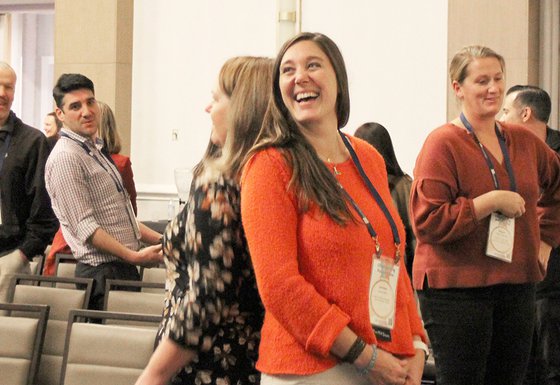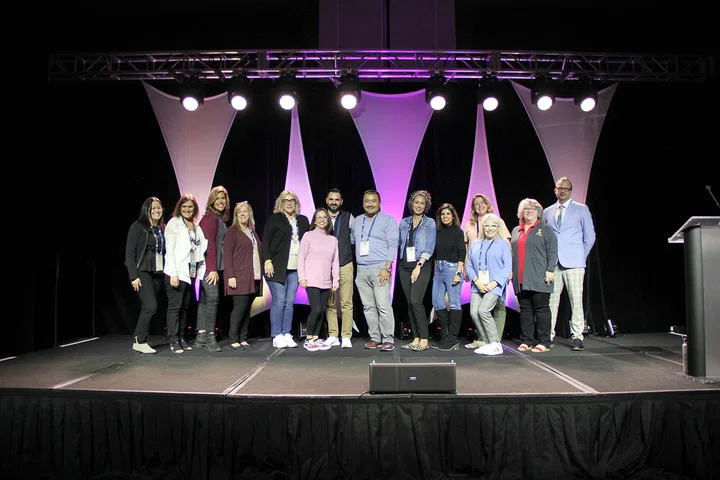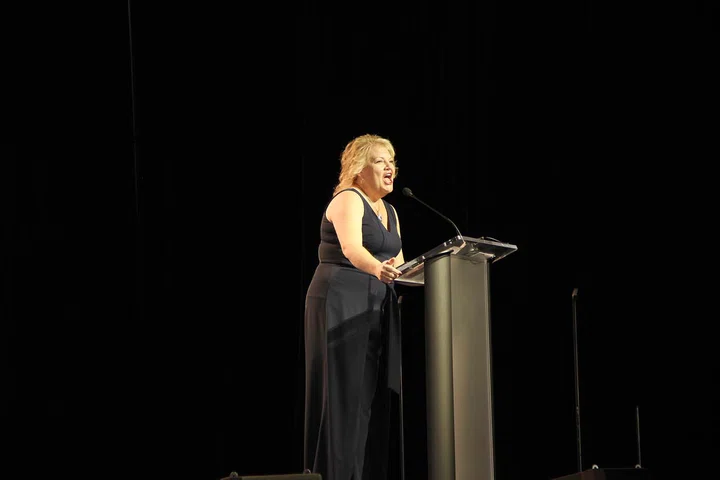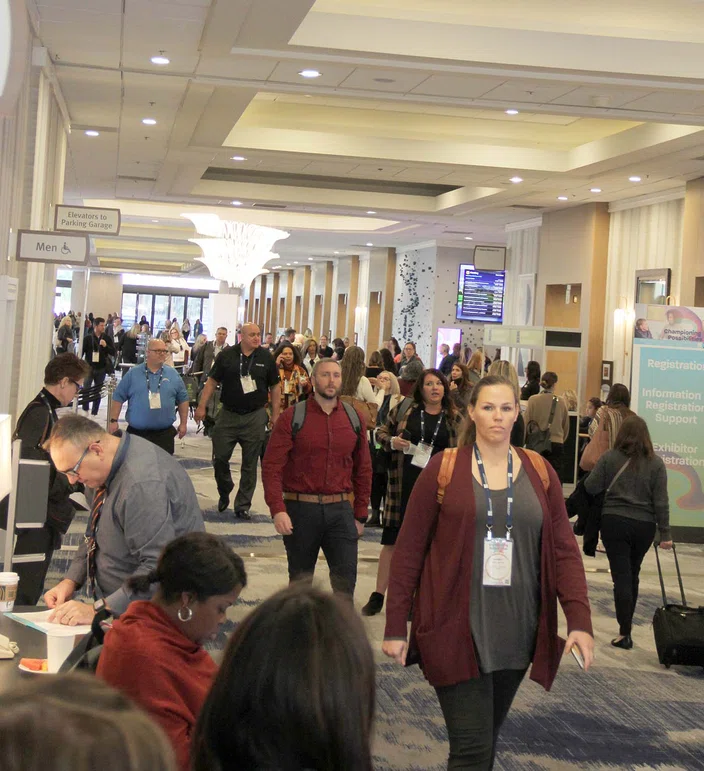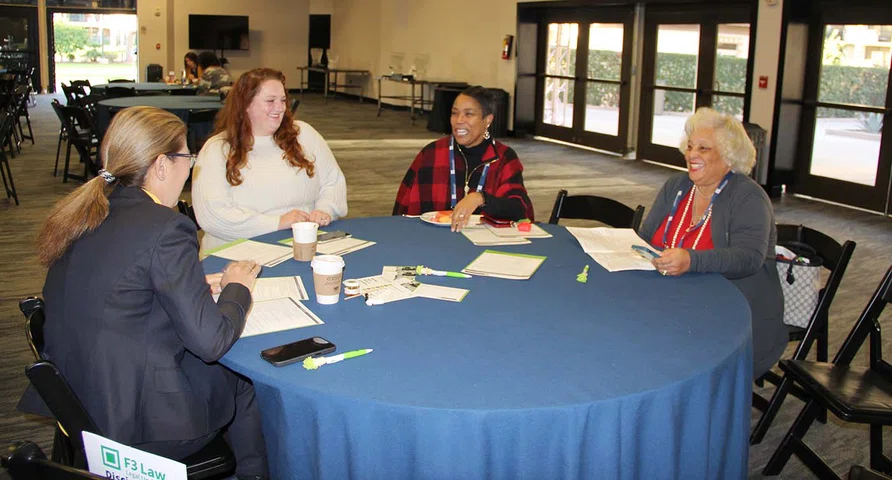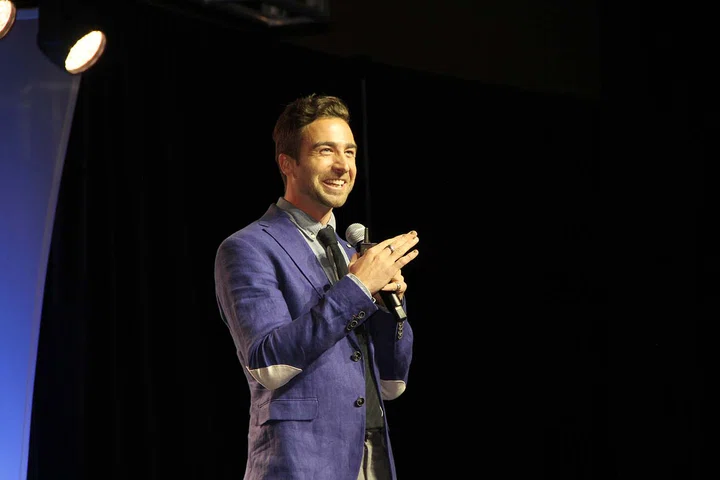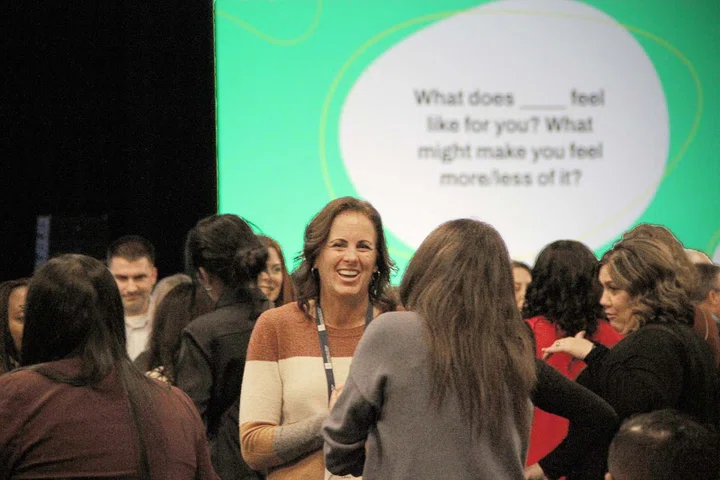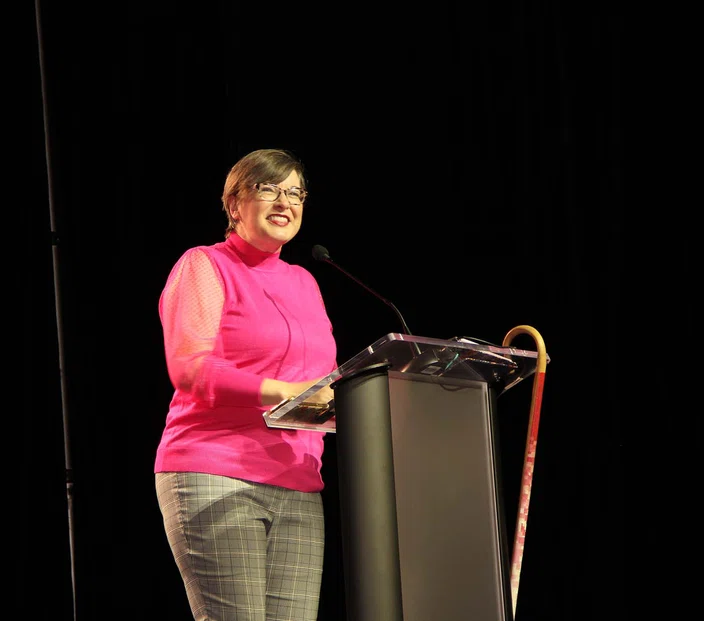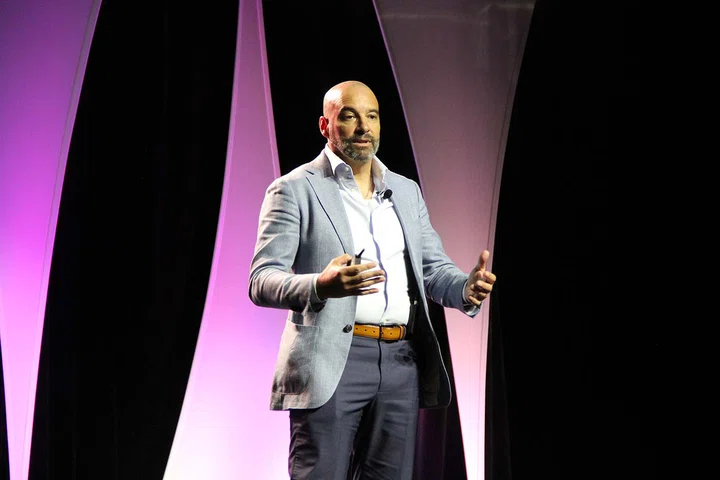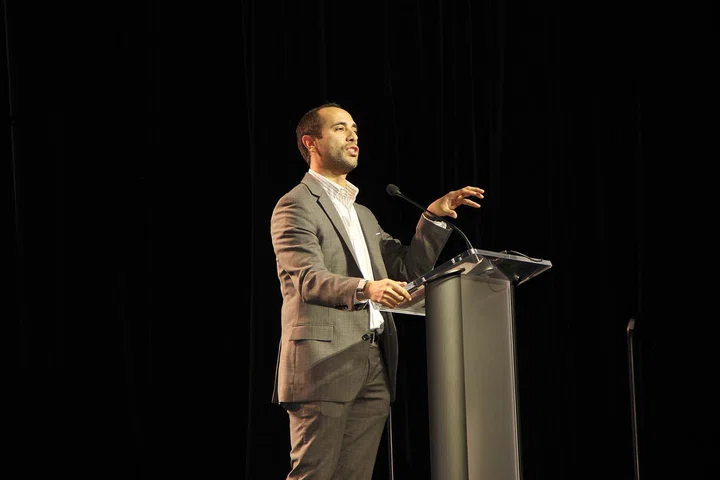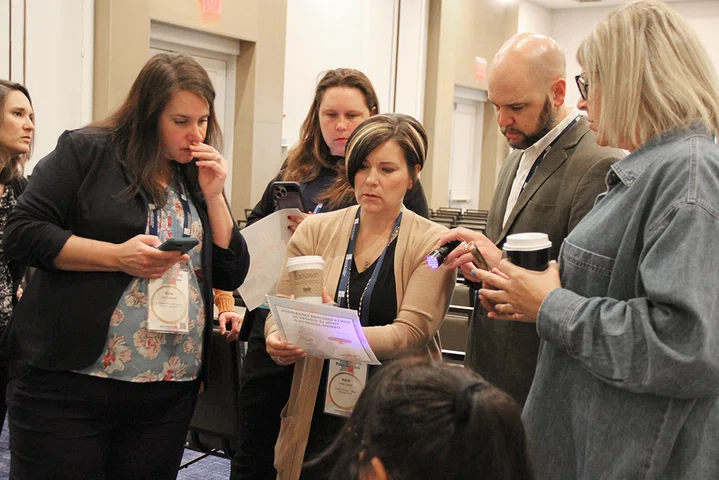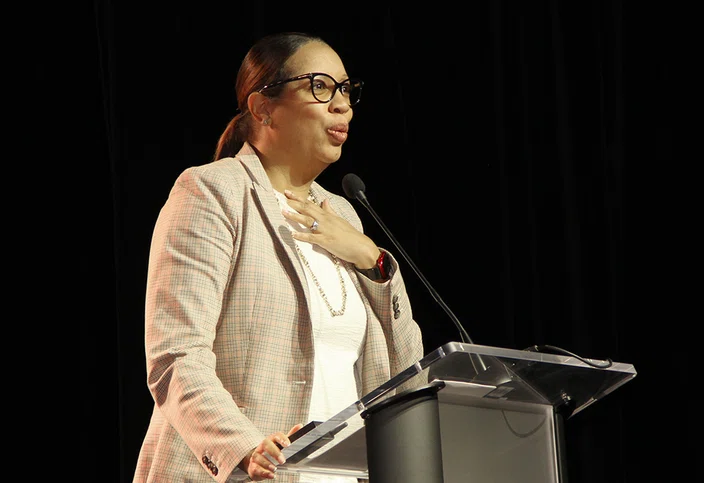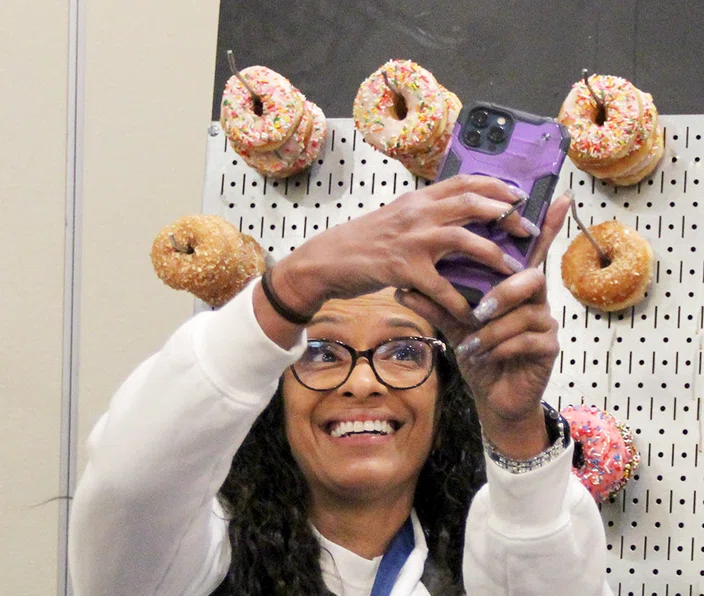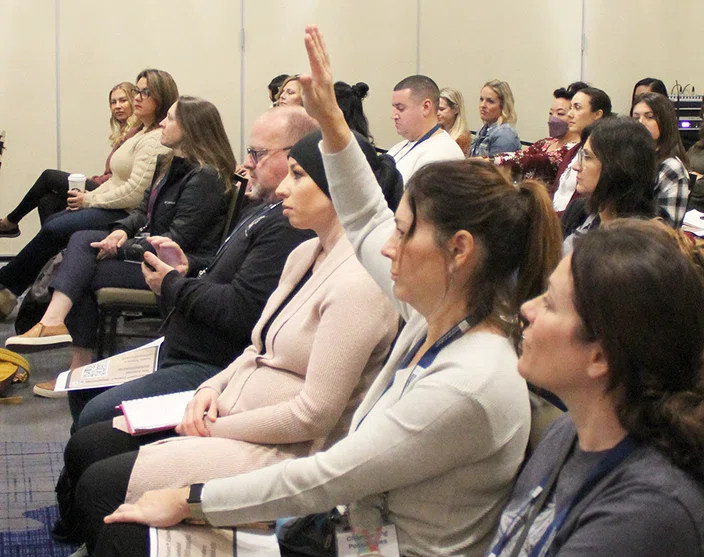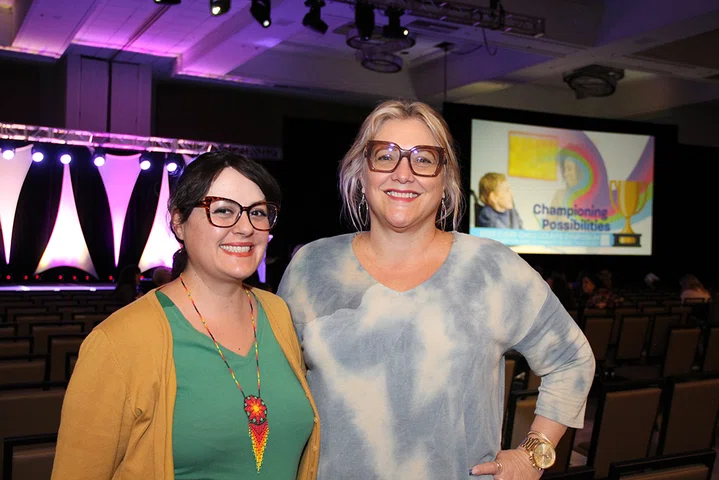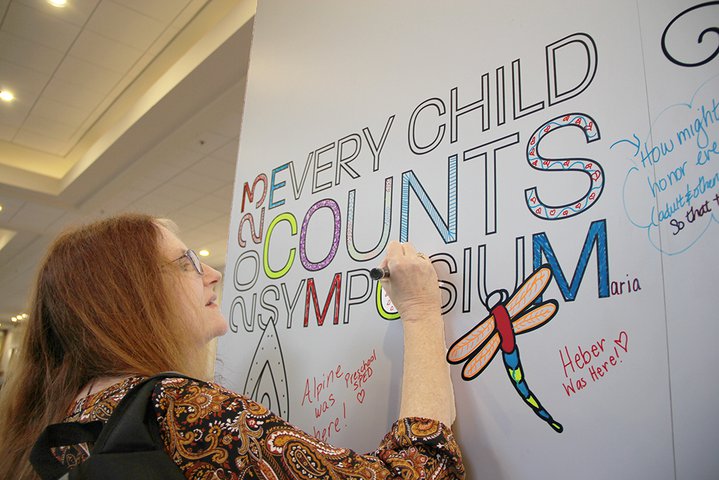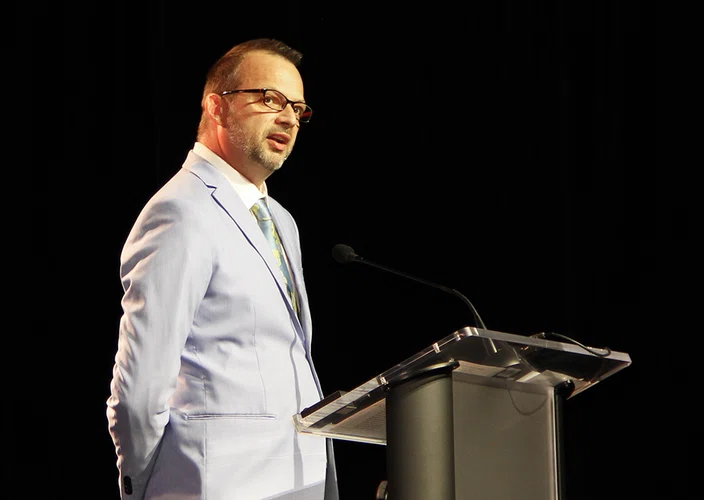Making every child count
Symposium draws more than 1,700 educators to Palm Desert
January 23, 2023
Educators from throughout California and from as far away as Washington state and Canada made their way to the desert Jan. 11-13 for the 2023 Every Child Counts Symposium, “Championing Possibilities.”
It was the largest symposium ever, with more than 1,700 educators drawn to network and share information on special education and student services.
ACSA Executive Director Edgar Zazueta acknowledged that attendees faced numerous challenges, including confronting powerful winter storms that recently caused school closures, damage and flooding throughout California.
“Our best wishes to you, aside from everything else on your plate, for taking this time to not only invest in yourself but invest in the students and the teams and the folks that you serve,” he said.
ACSA President Erin Simon addressed attendees before Thursday’s general session.
“I want to start by thanking each of you for the work you are doing for our students with disabilities, with special needs, for our foster, homeless and our most vulnerable youth as well,” she said. “You are devoting your lives to our school communities.”
ADVERTISEMENT
Event planning committee co-chairs Eli Gallup, Charity Plaxton-Hennings and Ginese Quann gave remarks during general sessions and introduced sessions alongside other planning committee members.
Administrators, teachers and specialists traded notes on their work and strategies that could help them better serve students.
“Essentially everybody’s dealing with the same stuff. Different characters. Same plot. Different location. There’s something about the camaraderie of, ‘Oh, you’re dealing with that, too,’” said Corrine Szarvas-Kidd, a school psychologist with Desert Sands USD. “When somebody makes a suggestion, the fact that it’s coming from outside gives me a sense of hope, like maybe I’ll try that. Maybe this time it will be different. It renews the sense of hope, because it’s easy to get discouraged. But the discouragement never wins because we keep coming every day.”
ADVERTISEMENT
Here are some highlights from the conference.
Escape room: In the session “Immersive Inclusion Escape Room,” presenters Nicole Chun, Nicole Moynihan and Kim Shaw facilitated an escape room activity that fostered conversations about equity, accessibility and inclusive practices. Participants had to share ideas and rely on each other to unlock boxes and locks. “We all have different strengths, so we needed to work together,” Perlita Vickroy, director of SPED for West Contra Costa USD, said of the experience. “And we learned no idea is a dumb idea.”
Staying compliant: Attendees visited several sessions featuring law firms sharing new guidance and laws governing special education and student services. They also got small-group advice during morning Law Firm Table Talks. Attendees like Tom Miller, a school psychologist with Butte COE, said that information helps him in his role supporting small schools. “Oftentimes they depend on me for that information up front, so I find this really helpful to come here because there’s lots of good information, current information about changes in the law,” he said. “I feel like I’m able to be more of a help to them.”
Struggle bus: In “10 Practical Ways to Reduce Educator Burnout,” presenter and licensed psychologist Rebecca Brandstetter shared tips for “getting off the struggle bus.” “Burnout looks a lot different for educators,” she said. “It looks like overdoing.” Among her recommendation was to take a character strength survey so educators can “preplan your strengths for adverse moments.”
“My own involvement with ACSA started because of my appreciation for this conference long ago when it was in Monterey. ... I hope you find the symposium as engaging as I have.”
— Eli Gallup, Council President and Symposium Co-chair
Confetti poster: Author and kindness advocate Houston Kraft delivered the first keynote Wednesday on just how difficult it is to be kind. While a popular poster proclaims we should “throw kindness around like confetti,” Kraft says that statement makes being kind sound easy, when it is not. “Kindness isn’t free. Kindness always costs us something,” he said. Kraft shared research that shows the biggest barrier to being kind is how little time we have in our rushed, busy days. “What would happen if we prioritize our to-be list with as much intention as our to-do list?” Kraft asked.
Hearts before heads: Educator, researcher and activist Jeff Duncan-Andrade shared research on why we need to win our students’ hearts before we win their heads during day two of the Symposium. He was honest about why schools’ equity programs aren’t working: they are designed from educators’ worldview. He stressed the need to empathize with students to truly serve them. “Our job is to humble ourselves and listen in service of the people and really try to understand what is it that they feel that they need from us, from our schools,” he said.
The “during” picture: Writer, speaker and stroke survivor Nika Maples told attendees that “expansion requires exposure.” The growth we experience in going from our “before” to our “after” photo requires us to be seen. “What happened to the ‘during’ picture?” she asked. “The ‘during’ was the hard part. I promise you the during phase does not last forever.”
Quick Takes: What was a standout session you attended at the ECC Symposium?
“Leading for Student Success” (Adam Clark):
“The idea that you can’t do it alone, but you also have to have a vision and a focus. The plan should have a visual, so people can see that and remember the visual and not always have to remember the words. That was big for me — I do have a plan, and a lot of my people know what it is, but they can’t communicate it.”
― David Rios, Principal Mountain Empire High School (Mountain Empire USD)
“Peer Connections to Support Inclusive Practices” (Zhanna Preston, Brandi Heise and Cynthia Vargas):
“What I enjoyed about the session was finding a new way to support students not just educationally but socially in the gen ed classroom by using peers. Everybody benefited from it because the students with disabilities benefit because they are in a gen ed classroom and the gen ed students are benefiting, not only are they getting credits for their electives, but they have a social benefit to it also.”
― Valerie Alatorre, Curriculum Program Specialist with Colton JUSD
“PLC Process for Paraeducators/Classified Staff” (Timothy Reid, Luke Browning, Lauren Stroud):
“One of the biggest things I think about is how to engage all staff in how to help everybody feel connected. They talked to us about how they had to stumble through the process and then they had some very good, effective strategies to help leaders in trying to engage paraprofessional and instructional aides in the classroom. They were very real about it, the chemistry between them was very good, very authentic.”
― Taiasha Alvarado, Administrator of Instruction, Kern HSD
“Leadership for Equity” (Connie Silva, Adam Clark, Mildred Browne):
“It was about making sure all students are being served appropriately, and the adults aren’t limiting the access that they have to the system or the adults are not limiting the students’ potential regardless of what the students’ abilities are.”
― Michael Kast, Executive Director, Special Education, Sacramento COE
Contact Us
www.acsa.org
© 2023 Association of California School Administrators




